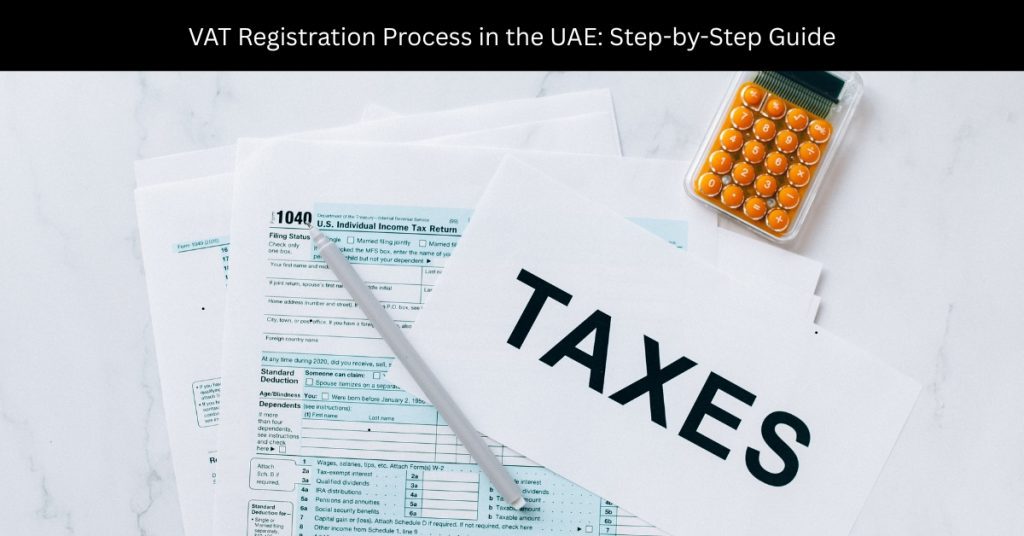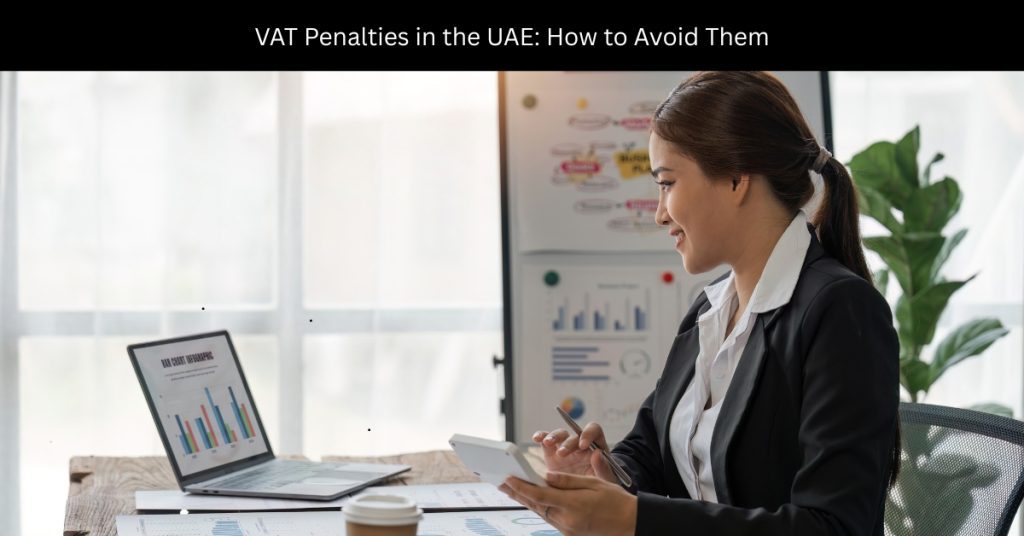What is VAT Reverse Charge Mechanism in Dubai, UAE?
The VAT Reverse Charge Mechanism (RCM) in Dubai and the UAE is a critical component of the country's tax system that shifts the responsibility for calculating and paying VAT from the supplier to the recipient. Since the implementation of VAT in 2018, understanding RCM has become essential for businesses operating in Dubai and across the UAE to maintain compliance with Federal Tax Authority (FTA) regulations.
This comprehensive guide will explore everything you need to know about the reverse charge mechanism, including when it applies, how to implement it correctly, and the compliance requirements that UAE businesses must meet. Whether you're importing goods, receiving services from abroad, or dealing with specific domestic supplies, mastering RCM is crucial for your business success.
At One Desk Solution, we specialize in helping businesses navigate the complexities of VAT compliance in Dubai and throughout the UAE. Our expert team provides comprehensive tax and bookkeeping services to ensure your business stays compliant while maximizing efficiency.
Need Expert VAT Guidance?
Don't navigate VAT compliance alone. Get professional assistance from Dubai's leading tax experts.
📞 Call Now: +971-52 797 1228 💬 WhatsApp UsUnderstanding VAT in the UAE
VAT (Value Added Tax) is an indirect tax imposed on most goods and services bought and sold in the UAE at a standard rate of 5%. It's collected at each stage of the supply chain, with businesses charging VAT on their sales (output VAT) and claiming VAT on their purchases (input VAT).
Key VAT Requirements in Dubai
- Mandatory registration for businesses with taxable supplies exceeding AED 375,000 annually
- Quarterly VAT return filings to the Federal Tax Authority (FTA)
- Comprehensive record-keeping and compliance documentation
- Timely payment of VAT obligations to avoid penalties
What is the Reverse Charge Mechanism?
Definition
The Reverse Charge Mechanism (RCM) is a VAT provision that shifts the responsibility for reporting and paying VAT from the supplier to the recipient (buyer) of goods or services. Instead of the seller charging VAT and remitting it to the government, the buyer calculates and pays VAT directly to the FTA.
Why is RCM Needed?
Cross-Border Transactions
Facilitates VAT collection on imports where foreign suppliers are outside UAE jurisdiction
Fraud Prevention
Prevents VAT fraud in certain high-value domestic supply chains
Business Facilitation
Promotes international business by removing registration obligations for non-resident suppliers
When Does the Reverse Charge Apply?
The reverse charge mechanism applies in specific instances outlined in the UAE VAT Law and Executive Regulations. Understanding these scenarios is crucial for proper compliance.
Main Scenarios Where RCM Applies
| Scenario | Explanation |
|---|---|
| Imports of goods/services for business use | Recipient in UAE pays VAT for goods or services imported from abroad |
| Supply by non-residents to UAE VAT-registered businesses | When the supplier has no place of residence in UAE, recipient accounts for VAT |
| Certain domestic supplies (e.g., hydrocarbons for resale) | Applies to oil, gas, and related energy products under specified conditions |
| Supplies from Designated Zones to Mainland UAE | Some free zone-to-mainland UAE supplies entail RCM, as per VAT regulations |
| Electronic devices (as per latest FTA rulings) | To counter fraud and ensure compliance in high-risk goods |
Mechanics and Steps for Applying RCM
Understanding the step-by-step process of implementing the reverse charge mechanism is vital for VAT-registered businesses in Dubai.
Receiving the Supply
Business in UAE imports goods/services from a foreign supplier (not UAE VAT registered)
Self-Assessment of VAT
The buyer calculates VAT as if they were the supplier
Recording in VAT Return
Declare the VAT on both input and output sides of the VAT return
Payment and Reconciliation
Pay net VAT due and maintain accurate documentation
Example Scenario
If Company A (UAE) imports software-based services from Company B (UK), Company A must:
- Report the value of supply
- Calculate 5% VAT
- Declare on its VAT return as both output and input
- Pay only the net VAT, if any after deducting input VAT claimable
Key Transactions Subject to RCM
| Type of Supply | Does RCM Apply? | Who Pays VAT? |
|---|---|---|
| Import of goods | Yes | UAE-registered recipient |
| Import of services from foreign supplier | Yes | UAE-registered recipient |
| Supply of crude/refined oil, natural gas | Yes | Registered buyer in UAE |
| Supply from designated zones | Yes, in cases | Recipient (conditions specified in regulations) |
| Electronic devices for resale | Yes (as updated) | Registered buyer in UAE |
| Domestic B2B between residents | Usually No | Supplier, unless notified under RCM by authorities |
Benefits and Challenges of the Reverse Charge
Benefits
- Reduces regulatory burden on foreign suppliers—they do not have to register for VAT in UAE
- Improves compliance and VAT collection on imports and high-risk goods
- Streamlines cross-border transactions by simplifying VAT reporting for resident businesses
Challenges
- Complex record-keeping and documentation requirements for local recipients
- Risk of error or non-compliance if RCM is not properly applied, leading to FTA penalties
- Frequent changes and updates in categories of goods/services liable to reverse charge
Record-Keeping & VAT Return Reporting
Proper record-keeping is essential for businesses making RCM transactions. Here are the key requirements:
| Requirement | Details |
|---|---|
| VAT Invoices | Should clearly mention 'Reverse Charge' and show tax amounts |
| Detailed Records | Goods/services, value, supplier details, RCM calculation |
| VAT Return | Disclose RCM on both input and output lines, claim net amount |
| Timely Reconciliation | Essential to avoid mismatches and FTA queries |
| Supporting Documentation | Contracts, import documents, supplier invoices |
Why Choose One Desk Solution for VAT Compliance?
One Desk Solution is Dubai's premier provider of tax, VAT, and bookkeeping services. With extensive experience serving over 200 clients across the US, Canada, UK, and UAE, we bring global best practices to local compliance requirements.
What Sets Us Apart?
- End-to-End VAT Solutions: VAT registration, RCM transactions, return filing, and FTA representation
- Bookkeeping Excellence: Cloud-based bookkeeping, reconciliation, and real-time reporting
- Cross-border Expertise: Specialized knowledge in international supplies and imports under RCM
- Personalized Training: Setup and training on advanced platforms like QuickBooks Online
- Tax Planning: Maximize savings while ensuring accurate and compliant records
- Multi-Industry Coverage: Real estate, construction, IT, retail, travel, and education sectors
Our expert team at One Desk Solution provides comprehensive VAT consultation services to help businesses navigate the complexities of RCM compliance in Dubai and throughout the UAE.
Frequently Asked Questions
1. Is it mandatory for all imports to apply the reverse charge?
Yes, all business-related imports of goods and services require the recipient to account for VAT through RCM, unless specifically exempted under UAE VAT regulations.
2. What documentation is needed for RCM compliance?
Maintain proper VAT invoices, contracts, and evidence of imports. VAT returns must reflect RCM calculations accurately with supporting documentation.
3. Can I claim input VAT on RCM supplies?
Typically, yes, if the supplies are used for taxable business activities—input VAT can reduce output VAT liability, resulting in no net payment (but compliance must be maintained).
4. What are the penalties for incorrect RCM reporting?
Incorrect or late filings can lead to significant fines from the FTA, which is why expert guidance is essential for proper compliance.
RCM Compliance Summary
| Aspect | Details |
|---|---|
| Who pays VAT under RCM? | The recipient (UAE-based VAT-registered business) |
| When is RCM used? | Cross-border imports, certain domestic supplies |
| Legal basis | UAE VAT Law and Executive Regulations |
| Common mistakes | Missing RCM transactions in returns, poor documentation |
| How to stay compliant | Work with VAT experts, maintain up-to-date records |
Related Articles
Get Expert VAT Assistance Today
Don't let VAT compliance complexities hold your business back. Our expert team at One Desk Solution is ready to help you navigate the reverse charge mechanism and ensure full compliance with UAE VAT regulations.
Contact Us Today 📞 Call: +971-52 797 1228 💬 WhatsAppConclusion: The VAT Reverse Charge Mechanism is a crucial aspect of UAE's tax system that requires careful attention to detail and proper implementation. By partnering with One Desk Solution, you can ensure your business remains compliant while focusing on what you do best—growing your business in Dubai and the UAE.



